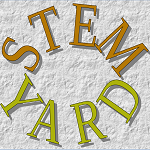Java is a programming language and computing platform. Java is everywhere! From laptops to datacenters, game consoles to scientific supercomputers, cell phones to the Internet.
Java is one of two, the other one is C/C++, allowed programming languages in ALL levels programming contests of CEMC (Centre for Education in Mathematics and Computing at the University of Waterloo), and IOI (International Olympiad in Informatics).
In this class, students will learn the basics of Java, practice in the class, present output of a homework assignment or a project. Typical pattern of each 1.5 hours session is review and discussion of the last session's contents and homework/project, introducing new contents along with instant practice, introducing new samples, algorithms, homework or a project. The projects emphasizes on problem solving and algorithms, instead of Java itself. The more complex of a project, the more sessions are necessary to work on.
10 sessions:
1.Start Coding with Java: Setup Java development environment by downloading and installing JDK and an IDE, and organize folders for doc/samples/practice programs. First Java program. Basics of Java syntax, keywords, variables, operators, logic, loop. Homework.
2. Array and Loops: Declare an array, access the elements of an array, change an array element. Multidimensional arrays, loop through a two-dimensional array. Ways to initialize an array. Java methods, method parameters. Homework, Project One
3. Project On Workshop: Project One presentations by students, sample solution introduction and discussion, solve problems together.
4. OOP, Java Classes: OOP - Object-Oriented Programming, classes/objects, create a class, create an object, class attributes, class methods, static vs non-static, using multiple classes, constructors, constructor parameters, modifiers. Homework.
5. User Input, String Methods, File Handling: User input (scanner), input types, Java exceptions (try... catch), create/write/read/delete a file, ArrayList, HashMap, String methods, Math methods. Project Two
6. Encapsulation, Inheritance, Polymorphism, Abstraction: OOPs in Java, encapsulation, inheritance, polymorphism, abstraction, get & set, interface. Project Two discussion
7. Project in an IDE: Create project, add files to a project, open an existing project, create archive, run a jar file in command prompt window. Samples of Java projects.
8. Project Two Workshop: Discussion on Project Two, sample solution introduction
9. Project Three: Project Three starts
10. Project Three Workshop, Next Steps: Discussion on Project Three, sample solution introduction. What's next for the Java programming journey?
